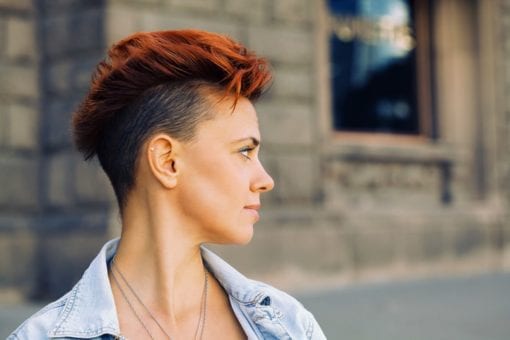National Eating Disorder Awareness Week is a national initiative to raise awareness about eating disorders — reducing stigma, educating the public and advocating for inclusivity in the greater eating disorder community.
Inclusivity in the eating disorder community means that all ethnicities, body types and genders are welcome. Here at Center for Discovery, our goal is to help each individual feel represented and respected — regardless of weight, body shape, skin color or sexual orientation.
To help you learn more about organizations working to expand eating disorder awareness, we are sharing a list of some of our favorites below:
Online eating disorder support blogs
Eating disorders are often misconstrued as residing in young female Caucasians who belong to the middle-upper class; this is a myth. The reality is that eating disorders affect everyone, including approximately 20 million women and 10 million men in the United States.
To help you break down more myths and learn the facts about eating disorders, look to these organizations.
Hope is valuable for people living with eating disorders and those who love them. Jacquelyn Ekern, a therapist who battled her eating disorder, began this blog to help others. It covers new research on eating disorders, eating disorder awareness events, and other news about treating and diagnosing eating disorders.
The Eating Disorders Coalition (EDC) is advocating, educating members of Congress, raising visibility, and spreading eating disorder awareness on social media. This organization is a great group to connect with if you are interested in seeing increased funding and support for eating disorders.
Center for Discovery is a reputable eating disorder treatment center that has locations around the country. They also have a strong presence in the online community and provide an online blog that is centered on all topics pertaining to eating disorders.
Eating disorder recovery podcasts
The Eating Disorder Recovery Podcast By Dr. Janean Anderson
Healing your relationship with food, your body and your self, The Eating Disorder Recovery Podcast is a show about the recovery process from eating disorders including anorexia, bulimia and binge eating. Topics also cover emotional eating, dieting and exercise addiction. The show is for anyone who would like to learn more about the psychology of eating disorders, making peace with food, improving their body image and living authentically.
What is Going On With My Body By Tammy Beasley, RDN
When it comes to recovering from an eating disorder, change is inevitable and frightening — so many people stop halfway. Tammy explains what is physically and physiologically occurring inside your body in the early stages of recovery from eating disorders. Gaining an understanding of the science behind your emotions and feelings can help alleviate some of the stress during this process.
Love, Food By Julie Dillon
This podcast allows listeners to rewrite their fate with food. Listeners write a letter to food outlining their complicated relationship with food from their first diet in early childhood to their first purging episode. You learn which food beliefs should stay in your heart and which others should be dumped down the garbage disposal.
In-person support groups
Support groups are a great way to find eating disorder resources in your community. In-person support groups vary based on location and therefore it is best to check with your treatment center to see if free support groups are offered in your home area.
The National Associated of Anorexia Nervosa and Associated Disorders (ANAD): ANAD offers in-person support groups in many cities across the United States. You can visit their website and search for a support group in your location. ANAD also offers other excellent programs such as opportunities to give back to our community by volunteering. Volunteering can be helpful in your recovery process as it can give you a sense of purpose and connection within your community. For more information visit their website.
Grocery store buddies: Grocery stores can be a terrifying place for you if you are new to recovery. This program is offered through ANAD and pairs you with a volunteer grocery buddy who can help you shop for nutritious and healthy foods. You may even develop a friendship and learn how to cook in the process.
Center for Discovery Support Groups: Center for Discovery offers free support groups that are open to all individuals in recovery. Find your community here with special groups open for friends, family members, individuals in binge eating disorder recovery and for BIPOC individuals in eating disorder recovery,
Non-Profit organizations
These non-profit organizations are well known, established organizations that offer free information and tools online for anyone interested in eating disorder awareness. A majority of those who suffer do not seek treatment because they feel embarrassed, are in denial, do not have the financial means or social support or simply do not know where to start. Part of building eating disorder awareness is to educate the public about the effectiveness of eating disorder treatment and the financial resources available to help individuals find the treatment they need.
Project Heal: This organization works to provide grants to individuals who cannot afford eating disorder treatment and also works to raise awareness for eating disorders and promotes healthy recovery.
The Body Positive Institute: This inspiring organization teaches people to listen to their bodies, learn and thrive. With a goal of ending many of the harmful consequences that are associated with negative body images (eating disorders, depression, anxiety, cutting, suicide and more), The Body Positive have been training educators and students for decades to spread body positive messaging in schools and communities.
NORMAL in Schools (NIS): NIS is a U.S. arts and education organization that educates the youth on the devastating impacts of eating disorders and how art therapy can help bring awareness and recovery to issues relating to body image, self-esteem, and severed relationships.
